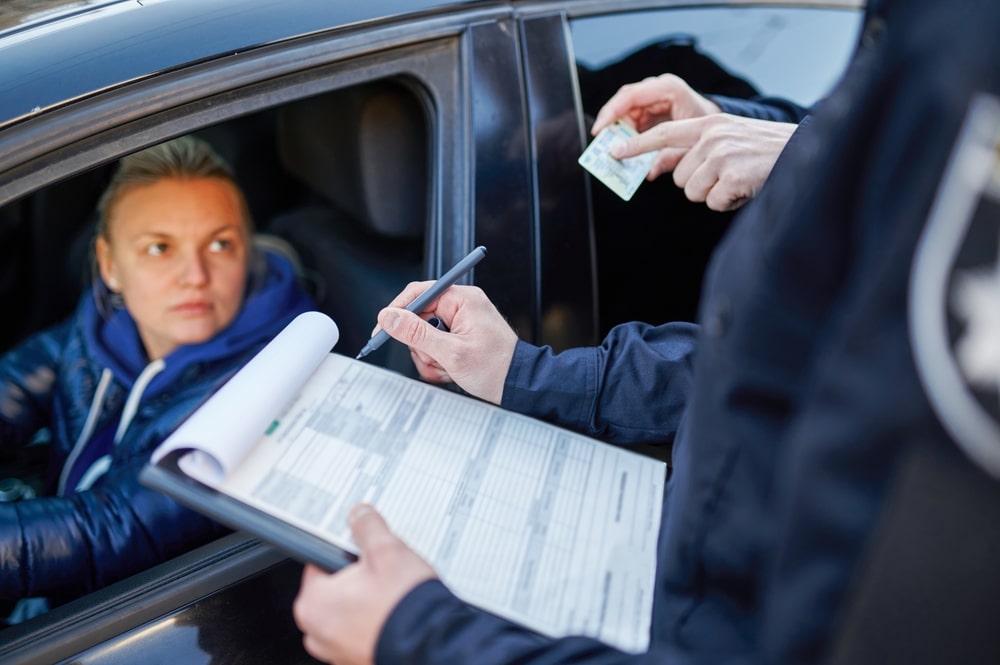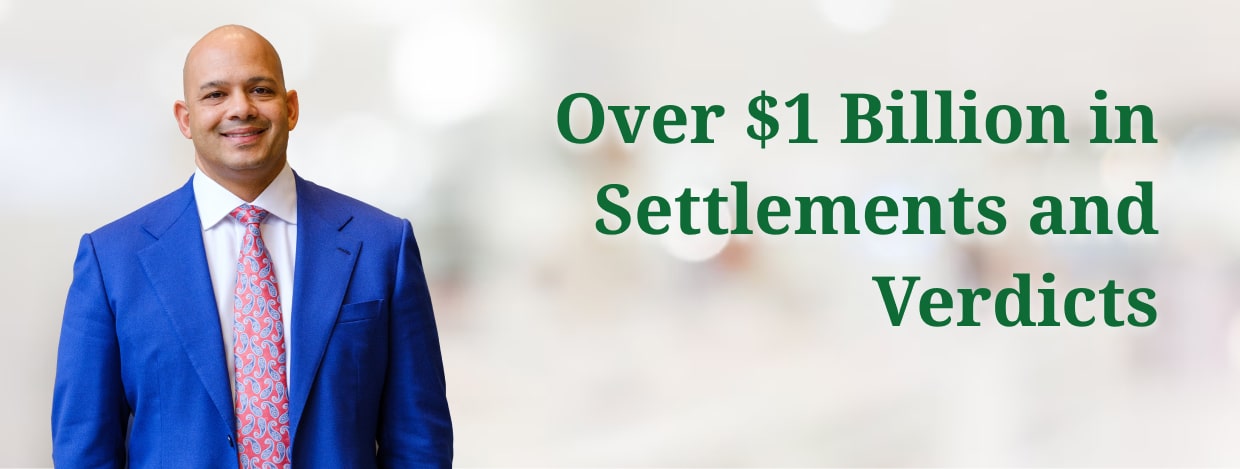
For many people, the day that they got their driver’s license is one that they will never forget. The Highways.dot.gov reports that approximately 90% of U.S. adults have a driver’s license. Of course, a license is important. You need one to lawfully drive in Florida. What happens if you do not have a license on your person? Is it illegal to drive without your license on you? The short answer is that this is classified as a “correctable offense” in Florida—assuming that you do actually have a valid license. In this article, our Fort Lauderdale car accident lawyer provides an in-depth guide to the most important things that you need to know about driving without a license in Florida.
Table of Contents
- Difference Between Driving Without a License and Driving Without a License on Your Person
- What Will Happen If You Do Not Have a License in Your Car in Florida?
- What are the Reasons Why a Person May Not Have a License?
- What are the Penalties for Driving Without a License in Florida?
- What are the Penalties for Driving With a Suspended/Revoked License in Florida?
- Are the Penalties Worse for Second (or Subsequent) Offenses?
- What is the Difference Between a Suspended License and a Revoked License?
- What to Know About Hardship Licenses in Florida?
- Are the Penalties Different for Minors (Drivers Under 18)?
- Can You Seek Financial Compensation for Damages Even if You Did Not Have a License?
- Does a No License Charge Go on a Driver’s Record in Florida?
- Can I Be Arrested for Simply Forgetting My Driver’s License?
- What Will Happen if an Unlicensed Motorist Operates Your Vehicle?
- Why Hire BK Law for a Car License-Related Case?
- Get Help From Our Fort Lauderdale Car License Issues Attorney
Difference Between Driving Without a License and Driving Without a License on Your Person
As a starting point, it is important to emphasize that driving without a license and driving without a license on your person are two separate matters in Florida. All motorists should have a valid license—but there are big differences between these two scenarios. Here is what you should know:
- Driving Without a License: Under Florida law (Florida Statutes § 322.03), all motorists must be licensed. You can be arrested and charged with a criminal offense if you are caught driving without a license in Florida. As a baseline, driving without a license is a second-degree misdemeanor criminal offense. It carries maximum penalties of a $500 fine and 60 days in jail. It is called a no-license charge.
- Driving Without a License on Your Person: Florida law requires drivers to have their valid, up-to-date driver’s license on their person when operating a motor vehicle. As you cannot necessarily prove that you have a valid license, you may be cited with a traffic ticket even if you explain the matter to the officer. In Florida, this is a “correctable offense.” You can generally go to the Clerk of Court in your county and present your license to resolve the matter without any criminal or civil liability. A $5 processing fee may be charged.

What Will Happen If You Do Not Have a License in Your Car in Florida?
If you are a licensed driver who does not have your license with you in the car, there are three scenarios that could arise if you get pulled over or are involved in an accident. First, an officer may simply issue you a warning to bring your license in the future. Alternatively, you may be issued a traffic ticket that gives you an opportunity to correct the offense by presenting your license. Finally, though unusual, an officer may not believe you and may charge you for driving without a license. You are not guilty of the offense simply because you forgot your license—though a charge could be initiated.
What are the Reasons Why a Person May Not Have a License?
There are a number of different reasons why a person may not have a driver’s license when stopped by law enforcement or when sorting things out at the scene of a car accident, such as a broadside collision. Some notable examples of reasons why a person may not have a license include:
- They forgot their license at home or in another location (not a serious problem);
- They lost their license and are waiting for a replacement (not a serious problem);
- They never had a license in the first place (a serious problem);
- Their license has been suspended (a serious problem); and
- Their license has been revoked (a serious problem).
What are the Penalties for Driving Without a License in Florida?
In Florida, driving without a license—which is distinct from driving without a license on your person—is called a No Valid Driver’s License offense. It is a second-degree misdemeanor criminal charge. The maximum fine is $500 and it carries a maximum jail sentence of 60 days.
What are the Penalties for Driving With a Suspended/Revoked License in Florida?
Some motorists have had a valid license, but have had their driving privileges suspended or even revoked. It is illegal to drive with a suspended or revoked license in Florida. Under Florida Statutes § 322.34, any motorist who operates a vehicle with a license that they knew or should have known was suspended or revoked faces a second-degree misdemeanor criminal charge that carries up to a $500 fine and 60 days in jail. These penalties are for a first offense.
Are the Penalties Worse for Second (or Subsequent) Offenses?
Yes. In Florida, penalties for driving with a suspended license or revoked license are based, in large part, on a person’s history of similar offenses or lack thereof. A second-time offense for driving with a suspended license or revoked license is a first-degree misdemeanor offense. It carries a maximum fine of $1,000 and the potential for a one-year jail term. The penalties for a third time driving with a suspended license or revoked license are even more severe. Indeed, this is a felony charge. It carries a maximum fine of $5,000 and the potential for five years in state prison.
To learn more, schedule a free consultation with us today.
What is the Difference Between a Suspended License and a Revoked License?
With a suspended license, a person’s driving privileges in Florida have been temporarily restricted. A suspended license will have a predetermined period of suspension. Assuming requirements are met, the driver will get their license back at the end of the suspension period. In contrast, with a revoked license, a driver’s ability to operate a motor vehicle has been taken away by the State of Florida. It is a more serious sanction. It may be imposed against a driver who has multiple DUI offenses or other very serious traffic violations. A license that has been revoked cannot be reinstated. Instead, a driver may be able to re-apply for a new license after a set number of years. There is no guarantee that a driver will be granted a new license in the future.
What to Know About Hardship Licenses in Florida?
A person whose license has been suspended or revoked has the right to submit a hardship application to the Florida Department of Highway Safety and Motor Vehicles (FLHSMV). A hardship license is a restricted license that grants a motorist the authority to drive in specific situations during their period of suspension and/or revocation. For example, imagine that a person has to drive to get to work each day. FLHSMV may grant a hardship license that allows them to do so. To be clear, a hardship license is only for a limited purpose. A person with a hardship license who drives outside of the scope of the restrictions could potentially face a criminal charge for driving with a suspended license.
Are the Penalties Different for Minors (Drivers Under 18)?
Minors are subject to the same rules in Florida as adult drivers. A 15, 16, or 17-year-old who is caught driving without a license could face a second-degree misdemeanor criminal charge that carries jail time. That being said, the state offers extensive alternative rehabilitation programs for minors. The circumstances always matter, but a minor has many more options available.
Can You Seek Financial Compensation for Damages Even if You Did Not Have a License?
Yes—though the specific circumstances always matter. A person driving without a valid driver’s license in Florida may not be covered by no-fault Personal Injury Protection (PIP) coverage. Though, there are exceptions. However, if they were seriously injured due to the negligence of another party (driver, truck company, etc.) they still have every right to bring a car accident claim to seek compensation. A Fort Lauderdale personal injury lawyer can help you take action to maximize your financial compensation. Damages may be available for:
- Vehicle repairs or replacement;
- Emergency room care;
- Hospital bills;
- Other medical costs;
- Lost wages;
- Diminished earnings;
- Pain and suffering;
- Mental distress;
- Disability;
- Disfigurement; and
- Wrongful death.
Does a No License Charge Go on a Driver’s Record in Florida?
It depends on the circumstances of the case. If you are issued a ticket for driving without a license on your person and you later correct the matter, then nothing will go on your driving record. However, if you are charged without a valid license, that is a criminal offense. A conviction will go on both your driving record and your criminal record.
Can I Be Arrested for Simply Forgetting My Driver’s License?
Driving without a valid license is an arrestable offense in Florida. Driving without a license on your person is not an arrestable offense. However, without your license, a police officer may believe that you do not have a license at all. With this in mind, it is technically possible that a driver could be arrested if they simply forgot their license. Though, this is not what typically happens. More likely, the officer will let you go without a warning or issue you a citation that requires you to pay a fine if you fail to show your license to the Clerk of Court within a specific number of days.
What Will Happen if an Unlicensed Motorist Operates Your Vehicle?
You should never let an unlicensed driver operate your vehicle. You could become legally responsible if they cause an accident. Another person may file a claim against your insurance company—or even you directly. Your insurance coverage could be invalidated or your premiums could rise. A person needs a valid driver’s license to operate a motor vehicle in Florida.
Why Hire BK Law for a Car License-Related Case?
Car accident claims are complicated. When these cases involve a person driving without a license on them or without a license at all, the situation can be even more confusing. At Bernheim Kelley Battista, LLC, we help our clients get justice and full financial compensation. Our law firm is always proactive. Among other things, our Fort Lauderdale auto accident lawyers are prepared to:
- Conduct an in-depth review and evaluation of your legal case;
- Answer your legal questions, including about license-related issues;
- Investigate the crash, gathering relevant evidence;
- Handle all of the legal and insurance paperwork;
- Represent you in settlement negotiations; and
- Take action to help you get the best outcome.
Get Help From Our Fort Lauderdale Car License Issues Attorney
At Bernheim Kelley Battista, LLC, our Fort Lauderdale car accident lawyers fight aggressively to help injured victims get real results and real justice. If you are wondering, “Is it illegal to drive without your license on you?”, we are here to help. Contact us today to set up your free, no-obligation consultation. We represent injured victims in Fort Lauderdale, Broward County, and beyond.
Personal Injury Practice Areas
Car Accident
Truck Accident
Uber Accident
Scooter Accident
Bicycle Accident
Boating Accident
Medical Malpractice
Wrongful Death
Slip and Fall
Construction Accident
Jet Ski Accident
Workers Compensation
Catastrophic Injury
Pedestrian Accident
Pool Accident
Premises Liability
Bus Accident
Motorcycle Accident
Dog Bite Accident

